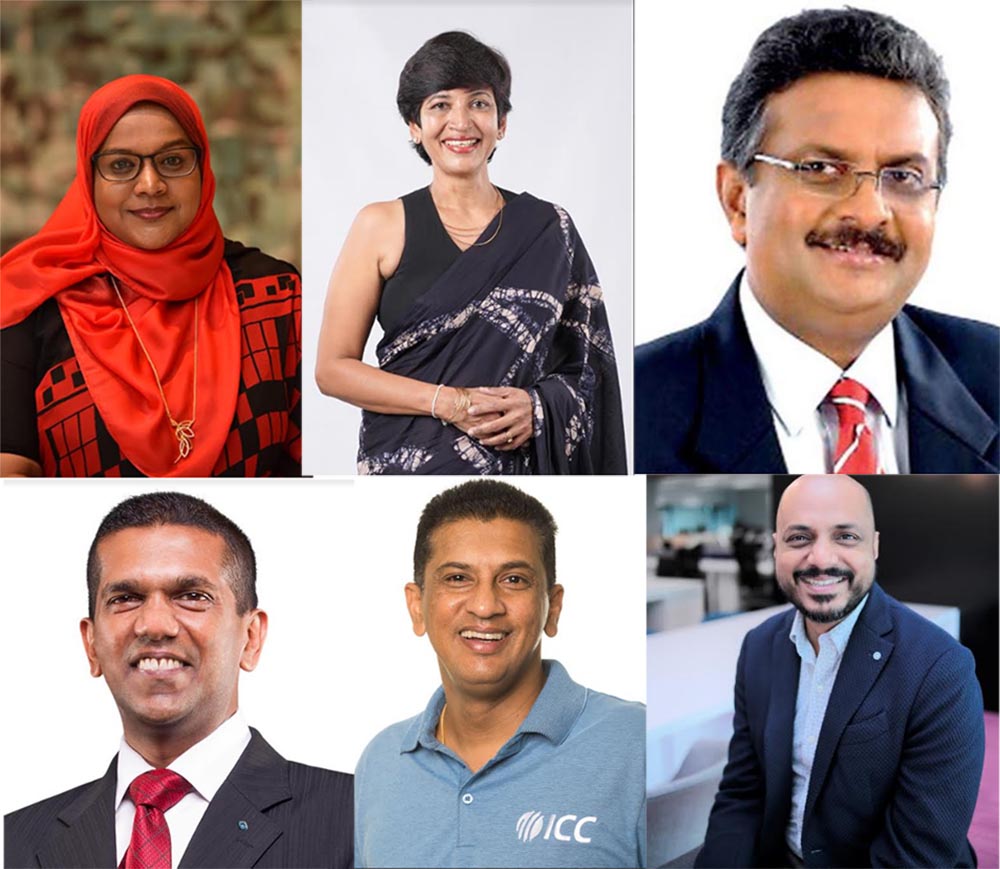
“No matter where you start or what you choose to do, CIMA will allow you to explore various avenues in the dynamic business world in your journey to become a well-rounded individual”. This was mentioned at the recently concluded webinar where, CIMA-qualified industry experts emphasized on why CIMA was their best choice for themselves as well as for their children when considering building a career in finance and business. The webinar event was moderated by Country Manager of CIMA Sri Lanka Zahara Ansary, ACMA, CGMA with Venkkat Ramanan, FCMA, CGMA, the Regional Vice President, Asia Pacific, of the Association of International Certified Professional Accountants as the key speaker. The other panellists comprised Chair of the University Grants Commission Sri Lanka and the former Vice Chancellor of the University of Sri Jayawardenepura Prof. Sampath Amaratunge, Managing Director of Hayleys Agricultural Holdings Jayanthi Dharmasena, FCMA, CGMA, CEO of GAC Group Ravi Edirisinghe, FCMA, CGMA and coveted Sri Lankan cricketer and a former member of the Elite Referee Panel Roshan Mahanama.
Presenting on the theme ‘Developing new leaders for a changing world’, Venkkat Ramanan commenced the webinar reflecting on the unprecedented situation the world is currently experiencing, citing that in lieu of this, it is pertinent that new leaders need to be nurtured and nourished to face challenges in the changing world.
He spoke about the Great Reset, an initiative by the World Economic Forum, which aims to call all stakeholders to co-operate collectively to manage the direct consequences of the COVID-19 crisis. The Great Reset not only addresses the economics of a country, but also on how businesses should be run during a crisis, especially small and medium-sized enterprises, which are the backbone of Sri Lanka’s rural economy. He emphasised on the specialised skillsets that are necessary to face these changing dynamics of the world and on the three key parameters published in a World Economic Forum article: foundational literacies, competencies and character qualities, as well as the framework surrounding these parameters as lifelong learnings.
Why do these skillsets matter now? Regarding this query, he quoted an example from Air Asia’s business model, where during the pandemic, the airline operator changed its business model to suit the changing dynamics and leveraged its fintech arm to ensure business success.
He went on to highlight what skills will be required by employers post COVID-19. He drew an example from a past article by McKinsey on the number of people who need to re-skill or upskill in order to be employable. He said, “Organizations don’t like laying off people since it is a human-conscious decision, so it would be the last decision. The initial decision would be on how to get the best out of the people.” To overcome this, he suggested that companies attempt to identify the agility of its employees in transforming their skillsets in order to be resilient and thrive in the long term. To elaborate further, he stated that accountants knowing financials as a technical skill should be expected, however, it is also necessary now for them to understand the macro and micro environments and cultivate people skills in order to play a more strategic role in companies.
He also related to how technology is making an immense impact and spoke about the inclusion of technology in leadership, people, business and technical skills instead of seeing it in isolation. He spoke about the role of management accountants, citing his own career as an example where he shifted gears from being an internal auditor to a person who tells the story behind numbers. He complemented Jayanthi and Ravi, who at the very outset realized how to understand finance and be able to advise on different parts of a business, and greatly emphasized that the greatest asset of being a management accountant is that decisions are made to make an impact based on insights, which allows accountants to forecast multiple options and allow businesses to make strategic decisions. “This is the fundamental DNA that CIMA offers to accountants, as well as opening up global opportunities since CIMA is a global organization,” he added. He cited a few CIMA members, including past president Amal Ratnayake and Melanie Kanaka who had global exposure owing to the CIMA qualification. He concluded by highlighting the vast career options offered by CIMA, and the different testing methods adopted by CIMA to keep abreast with challenges around the world.
Mr. Roshan Mahanama spoke about how choosing a qualification that suits one’s personality is important; in his life itself, two of his three daughters chose CIMA, while the other opted to study medicine. He spoke about living the dream and paid gratitude to his parents who allowed him to live his dream, which was to represent Sri Lanka in the sport he passionately loved.
Prof. Sampath Amaratunge, spoke about how CIMA became a highly pursued qualification amongst local university students. He added that CIMA brings a lot to the table in terms of soft skills, internship opportunities and other perks, which are what encouraged his son to pursue the qualification as well. He said that CIMA can be done by anyone due to the flexibility offered by the professional qualification.
Managing Director of Hayleys Agricultural Holdings Jayanthi Dharmasena, FCMA, CGMA related to how timing differences in her studies resulted in her following the CIMA qualification. She also commended the skillsets encouraged by CIMA, which were applicable in various business scenarios. Her youngest son is pursuing CIMA as well, and she has the utmost confidence that the qualification will allow him to choose his own career path when the time comes. Furthermore, she added that CIMA is not merely a financial qualification, instead it connects with the businesses and CIMA-qualified students are viewed as well-rounded professionals that continue upskilling their competencies and learn continuously.
Ravi Edirisinghe, FCMA, CGMA, CEO of GAC Group, spoke about how he ended up choosing CIMA despite having a passion for mathematics and engineering. He mentioned that the civil unrest that prevailed prompted him to pursue CIMA instead of joining a local university and it definitely paid off. He views CIMA as the qualification that gave him an immense career boost and allowed him to excel in life. He also has experience in advising, teaching and mentoring over 50,000 CIMA students. With his daughter also pursuing CIMA, he emphasized that CIMA fits into any job role and aims to coach young people to be effective communicators. He concluded by saying that sharpening one’s knowledge is more important than stacking up qualifications.
According to him, “There is no specific role built through CIMA; rather, it is what role is created by each individual depending on the value they bring forward. This is why CIMA-qualified professionals are called finance and business leaders


